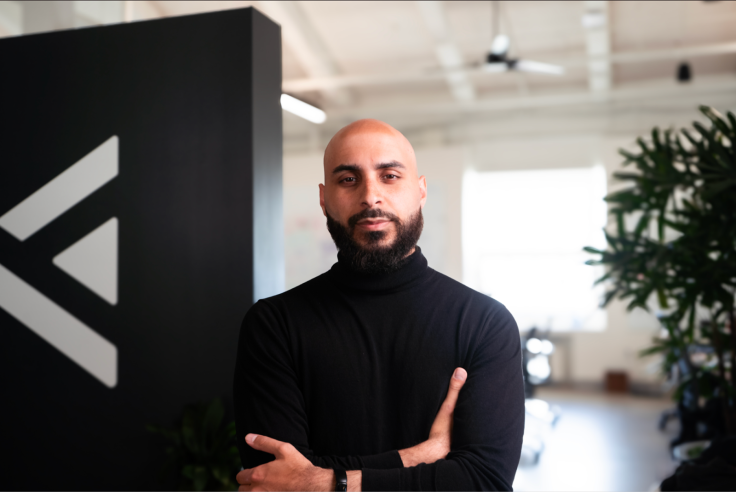From Nonprofit Politics To AI Innovation: A Founder's Quest For Meritocracy
By embracing a meritocratic approach that prioritizes the market over bureaucratic interests, Haseab was finally empowered to generate real-world value

Market competition is a powerful driver of innovation. It gives both individuals and companies a monetary incentive to constantly improve the quality of their products and allows them to succeed solely on the merits of their services.
This meritocratic principle drives software engineer Haseab. After starting in the nonprofit sector, he transitioned into the competitive space of tech entrepreneurship. Today, he's the founder behind automatic.chat, an AI platform that helps businesses create and monitor robust AI assistants easily and cost-effectively.
Read on to learn more about Haseab's journey and how following a meritocratic approach has shaped his commitment to developing accessible AI solutions.
Beginning In Nonprofits
Haseab started his management career on the board of Neill Wycik, a nonprofit housing cooperative in downtown Toronto. He brought a fresh perspective to a more senior board, and while he was initially enthusiastic about his work, Haseab noticed that the board lacked a proactive mindset. This motivated him to propose a Strategic Plan for tackling goals like creating a proactive member recruitment program, establishing robust management reporting, and revitalising member engagement. Just two years into his tenure, he was voted in as president of the board.
However, Haseab soon became frustrated by the politics exhibited by some of his fellow board members. He felt that many of them were personally motivated to carry out their self-serving agendas rather than unite behind the organisation's best interests. "When you have 12 unpaid volunteers governing a multimillion-dollar organisation, aligning incentives is an uphill climb," Haseab notes.
Disappointed by this bureaucracy, Haseab left Neill Wycik, feeling his efforts would be better suited in an environment less dictated by internal politics. Instead, he united motivations through innovation and value creation — something he realised the nonprofit sector often lacks.
Motivated by this shift in perspective and fully embracing a meritocratic approach to business, Haseab took his talents to the rising field of artificial intelligence.
Breaking Into the Tech World

Looking to take part in something new, Haseab partnered with a high-school friend to launch his first startup, micropay.ai. This web app allows users to access text-to-image generators like Dall-E on a pay-per-use basis. So, instead of paying $15 upfront for 100 image generation credits, you might just pay 10 cents for one image. To avoid multiple credit card fees on such minute transactions, micropay.ai used the Lightning Network, a Bitcoin protocol that allowed near-instant and feeless transactions.
This project initially gained traction, garnering 1,000 orders within the first week of launch and capturing the attention of the Lightning Network community. But after a few more months of development, Haseab and his co-founder realised that a "spot" pay-per-use structure was more of a burden for users than a benefit — it forced them to make a financial decision with every purchase, ultimately causing decision fatigue and drawing them away.
Compare this to a more straightforward "post" pay-per-use platform like Amazon Web Services, which tracks usage in a ledger and charges you once at the end of the month. Furthermore, the user base of the Lightning Network proved to be too small, prohibiting any significant scale.
Haseab wistfully looks back on this early experience and recognises his mistakes: "We spent so much time and money building a good brand without focusing on the most important piece: Are we building something that people want? The answer was not yet."
While Haseab didn't move forward with micropay.ai, it ultimately reinforced a meritocratic mindset that rewards resilience and adaptability with success. It also gave him a deeper understanding of market desires and the philosophy of building quickly and failing fast— which would prove crucial in subsequent ventures.
Iterating Towards Profitability
Equipped with these lessons, Haseab and his co-founder no longer felt tied to any one idea. However, any new idea had to prove itself with profitability; if it didn't, it would be scrapped.
This led to the creation of four different products in the span of just two months:
- A logical fallacy checker called fallacy.review
- An autocompleter called autocomplete.live
- A B2B customer support product called automatic.chat
- An LLM observability tool called llm.report
The first platform to get to profitability was automatic.chat. Automatic chat is a platform that allows non-techies to build, deploy, and monitor AI chatbots. Plenty of these assistants were on the market already, but users weren't very satisfied with them. "No existing chatbot platform focuses enough on the quality or accuracy of their answers," Haseab explains, "because most companies' main interest is providing a basic, low-hanging fruit solution — which leads the AI to be trained on poor data and generate inaccurate or inconsistent answers."
So instead, by leveraging advanced AI technology that allows businesses to observe and customise the information the chatbot relies upon quickly, automatic.chat can avoid potential inconsistencies or inaccuracies and provide a better user experience.
However, in the first few weeks of development, Haseab and his co-founder realised that there was no accessible system for companies to monitor the efficiency of their LLM applications in real-time. To this end, they also released llm.report, an open-source tool that allows for the monitoring of an LLM's performance and overall costs.
This innovative project attracted the attention of several venture capital firms, was used by dozens of unicorn startups to monitor their costs, and even received "Best Project" in the Vercel AI Accelerator (which came with a prize valued at over $100,000). But despite all of this success, they ultimately decided to discontinue the project after its first year, stating that "going down the venture-backed route without a direction on how to monetise an open-sourced project was a huge opportunity cost." Instead, they chose to take what they learned from llm.report to enhance automatic.chat.
This created a unique competitive edge for automatic.chat because it gave non technical businesses a first-of-its-kind observability into how a chatbot performs, allowing for better improvement over time. This propelled automatic.chat to become widely adopted among multiple industries, from Wealth Management Funds based in the U.K. to a partnership with Heroic Signatures (a subsidiary of Tencent-owned Funcom) to power the AI-driven text adventure game Conan Exiles: Tavern of Treachery.
Fulfilling His Meritocratic Vision

By embracing a meritocratic approach that prioritizes the market and rapid iteration over bureaucratic and private interests, Haseab was finally empowered to generate real-world value, rather than juggling interpersonal conflicts on a nonprofit board. His journey of focusing on tangible results and user-driven development has positioned automatic.chat at the forefront of AI chatbot technology, proving that innovation thrives when unencumbered by bureaucratic red tape.
To stay updated on Haseab's latest and upcoming projects, follow him on X.
© Copyright IBTimes 2025. All rights reserved.





















